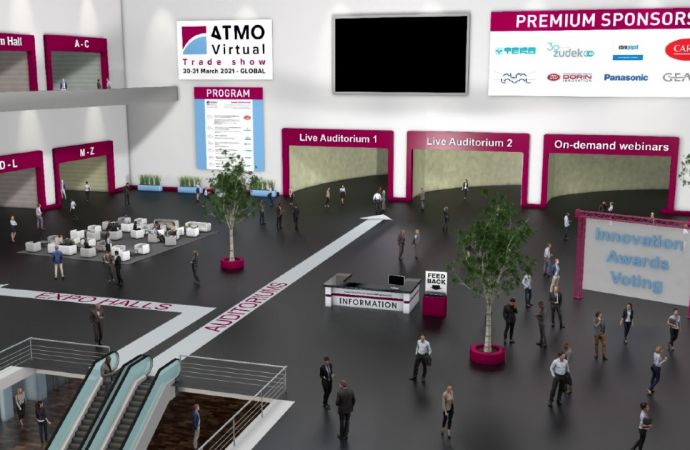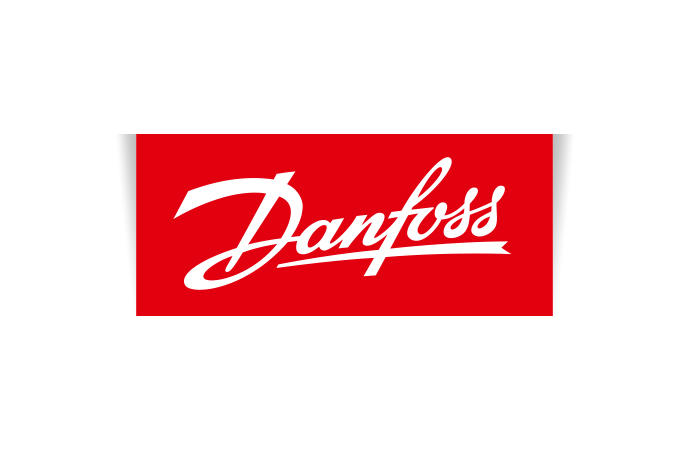With the phase-out of HCFCs, and R-22 in particular, there is concern over the choice of alternatives for AC in countries with hot climates. At the upcoming UNIDO ATMOsphere conference (June 3-4 Vienna) this topic will be analysed in a Case Study by Godrej India/GIZ Proklima. Other examples of hydrocarbons in high ambient temperatures will be discussed including a presentation showcasing a medical store room with a 24 kilo refrigerant charge in Costa Rica, cold store facilities in Viet Nam, and

R-290 as an Alternative Refrigerant for Split Air Conditioning Systems in High Ambient Temperatures by Godrej India, presented by Daniel Colbourne of GIZ Proklima
This presentation addresses the performance of an R-22 split type air conditioner and an R-290 air conditioner specifically for very high ambient temperatures. The result of the equipment tested will be analysed in terms of capacity and coefficient of performance (COP). Further modeling exercises indicate that adjustments in terms of the characteristics of the evaporator and condenser can help improve the performance at high ambient temperatures. However, R-290 is a flammable refrigerant, meaning that safety considerations must be given to its use. Given that high ambient temperatures imply larger heat loads and therefore greater cooling capacity and refrigerant charges, additional deliberations are necessary to address the constraints and associated risks.
Refrigeration System for Medicine Storage Cold Room with hydrocarbon R-290 by Rafael Rau V., Refrigeration Consulting, Costa Rica
This presentation will highlight a medicine storage cold room currently in operation using hydrocarbons. The system is based on refrigerant R-290 and has a cooling capacity of 75 kW and a cooling load of 24 kg. This Case Study will compare refrigerants R-1340 and R-404 with hydrocarbons solutions, from the perspective of efficiency in the refrigeration cycle (COP), costs (including operating costs), and values of TEWI. The facility is located in San Jose, Costa Rica and has a refrigerant charge of 24 kilograms, making it especially important for safety considerations.
Promoting low-GWP refrigerants for Air-Conditioning Sectors in High-Ambient Temperature Countries by Ole Nielsen, UNIDO
In order to address the obstacles and accelerate the phase-out of HCFCs, this UNEP/UNIDO project aims to promote environmentally sound (and appropriate for) high-ambient temperature regions solutions for the AC sector in the Gulf countries. This will be achieved by studying the current and long-term commercially available refrigerants and AC, addressing the Energy Efficiency (EE) standards, undertaking a market study aiming at comparing initial and operating costs of low-GWP AC, and finally by identifying commercial opportunities and associated fiscal implications for facilitating the transfer of low-GWP technology.
Conversion of HCFC-22 Based Facilities to Ozone and Climate Friendly Alternatives in the Fishing / Food Processing (Servicing) Sectors in Viet Nam by UNIDO
Viet Nam is one of the leading countries for aquaculture, aquatic product processing and export in the world. According to the Ministry of Natural Resources and Environment (MONRE), there are around 400 cold storage facilities used for fisheries, each with an average of 10 refrigeration machines running on HCFC-22. Most of technologies used are high carbon emitting and low energy efficient. Since most, if not all, cold storage facilities in Viet Nam are older and have serious leakage problems those will be replaced with innovative technology based on hydrocarbon refrigerants: propane and propylene. Provided precautions are taken to mitigate the consequences of their flammability, hydrocarbons make excellent refrigerants in practice.
More UNIDO ATMOsphere selected case studies
UNIDO ATMOsphere will feature several more Technology Case Study presentations dealing with hydrocarbons and other natural refrigerants:
Registration Still Open!
We already have over 200 registered participants for the UNIDOATMOsphere Technology Summit from both developed and developing countries, including European, American and Asian technology companies! This conference provides participants with a unique opportunity to position themselves in new markets and demonstrate how Natural Refrigerants can be implemented successfully in developing countries. You still have time to reserve a seat in the conference room (free of charge), but all participants must be announced before hand.
Register yourself and your partners and/or clients here: www.ATMO.org/UNIDO/Registration
About UNIDO ATMOsphere
This HVAC&R (and foam) industry event focuses on natural refrigerants (CO2, ammonia, hydrocarbons, water and air) as viable options for developing countries looking to phase-out HCFCs under the Montreal Protocol. The conference will examine the cost of implementation, barriers and incentives regarding safety and training, as well as opportunities and challenges faced when introducing natural substances. The conference will take place from 3-4 June at the UNIDO headquarters, the Vienna International Centre, in Austria.
General Information: www.ATMO.org/UNIDO
Preliminary programme: www.ATMO.org/UNIDO/programme
This presentation addresses the performance of an R-22 split type air conditioner and an R-290 air conditioner specifically for very high ambient temperatures. The result of the equipment tested will be analysed in terms of capacity and coefficient of performance (COP). Further modeling exercises indicate that adjustments in terms of the characteristics of the evaporator and condenser can help improve the performance at high ambient temperatures. However, R-290 is a flammable refrigerant, meaning that safety considerations must be given to its use. Given that high ambient temperatures imply larger heat loads and therefore greater cooling capacity and refrigerant charges, additional deliberations are necessary to address the constraints and associated risks.
Refrigeration System for Medicine Storage Cold Room with hydrocarbon R-290 by Rafael Rau V., Refrigeration Consulting, Costa Rica
This presentation will highlight a medicine storage cold room currently in operation using hydrocarbons. The system is based on refrigerant R-290 and has a cooling capacity of 75 kW and a cooling load of 24 kg. This Case Study will compare refrigerants R-1340 and R-404 with hydrocarbons solutions, from the perspective of efficiency in the refrigeration cycle (COP), costs (including operating costs), and values of TEWI. The facility is located in San Jose, Costa Rica and has a refrigerant charge of 24 kilograms, making it especially important for safety considerations.
Promoting low-GWP refrigerants for Air-Conditioning Sectors in High-Ambient Temperature Countries by Ole Nielsen, UNIDO
In order to address the obstacles and accelerate the phase-out of HCFCs, this UNEP/UNIDO project aims to promote environmentally sound (and appropriate for) high-ambient temperature regions solutions for the AC sector in the Gulf countries. This will be achieved by studying the current and long-term commercially available refrigerants and AC, addressing the Energy Efficiency (EE) standards, undertaking a market study aiming at comparing initial and operating costs of low-GWP AC, and finally by identifying commercial opportunities and associated fiscal implications for facilitating the transfer of low-GWP technology.
Conversion of HCFC-22 Based Facilities to Ozone and Climate Friendly Alternatives in the Fishing / Food Processing (Servicing) Sectors in Viet Nam by UNIDO
Viet Nam is one of the leading countries for aquaculture, aquatic product processing and export in the world. According to the Ministry of Natural Resources and Environment (MONRE), there are around 400 cold storage facilities used for fisheries, each with an average of 10 refrigeration machines running on HCFC-22. Most of technologies used are high carbon emitting and low energy efficient. Since most, if not all, cold storage facilities in Viet Nam are older and have serious leakage problems those will be replaced with innovative technology based on hydrocarbon refrigerants: propane and propylene. Provided precautions are taken to mitigate the consequences of their flammability, hydrocarbons make excellent refrigerants in practice.
More UNIDO ATMOsphere selected case studies
UNIDO ATMOsphere will feature several more Technology Case Study presentations dealing with hydrocarbons and other natural refrigerants:
- Safe and Responsible Usage of Natural Refrigerants by Torben Funder-Kristensen, Danfoss
- Emerging Countries in Natural Refrigerants with a Focus on South Africa by Michael Englebright, CAREL
- Field Cases with Natural Refrigerants in Developing Countries by Jan Boone, Mayekawa Europe
- Use of Natural Refrigerants in Industrial Plants in Article 5 Countries by Erich Wagner, Alfa Contracting
- Technically Viable Options in Mild and Hot Climates (CO2 transcritical) and Cost Considerations by Caleb Nelson, CTA Architects
- Supermarkets with Natural Refrigerants in South Africa by Bernd Kaltenbrunner, Eurammon
Registration Still Open!
We already have over 200 registered participants for the UNIDOATMOsphere Technology Summit from both developed and developing countries, including European, American and Asian technology companies! This conference provides participants with a unique opportunity to position themselves in new markets and demonstrate how Natural Refrigerants can be implemented successfully in developing countries. You still have time to reserve a seat in the conference room (free of charge), but all participants must be announced before hand.
Register yourself and your partners and/or clients here: www.ATMO.org/UNIDO/Registration
About UNIDO ATMOsphere
This HVAC&R (and foam) industry event focuses on natural refrigerants (CO2, ammonia, hydrocarbons, water and air) as viable options for developing countries looking to phase-out HCFCs under the Montreal Protocol. The conference will examine the cost of implementation, barriers and incentives regarding safety and training, as well as opportunities and challenges faced when introducing natural substances. The conference will take place from 3-4 June at the UNIDO headquarters, the Vienna International Centre, in Austria.
General Information: www.ATMO.org/UNIDO
Preliminary programme: www.ATMO.org/UNIDO/programme
MORE INFORMATION
Related stories





